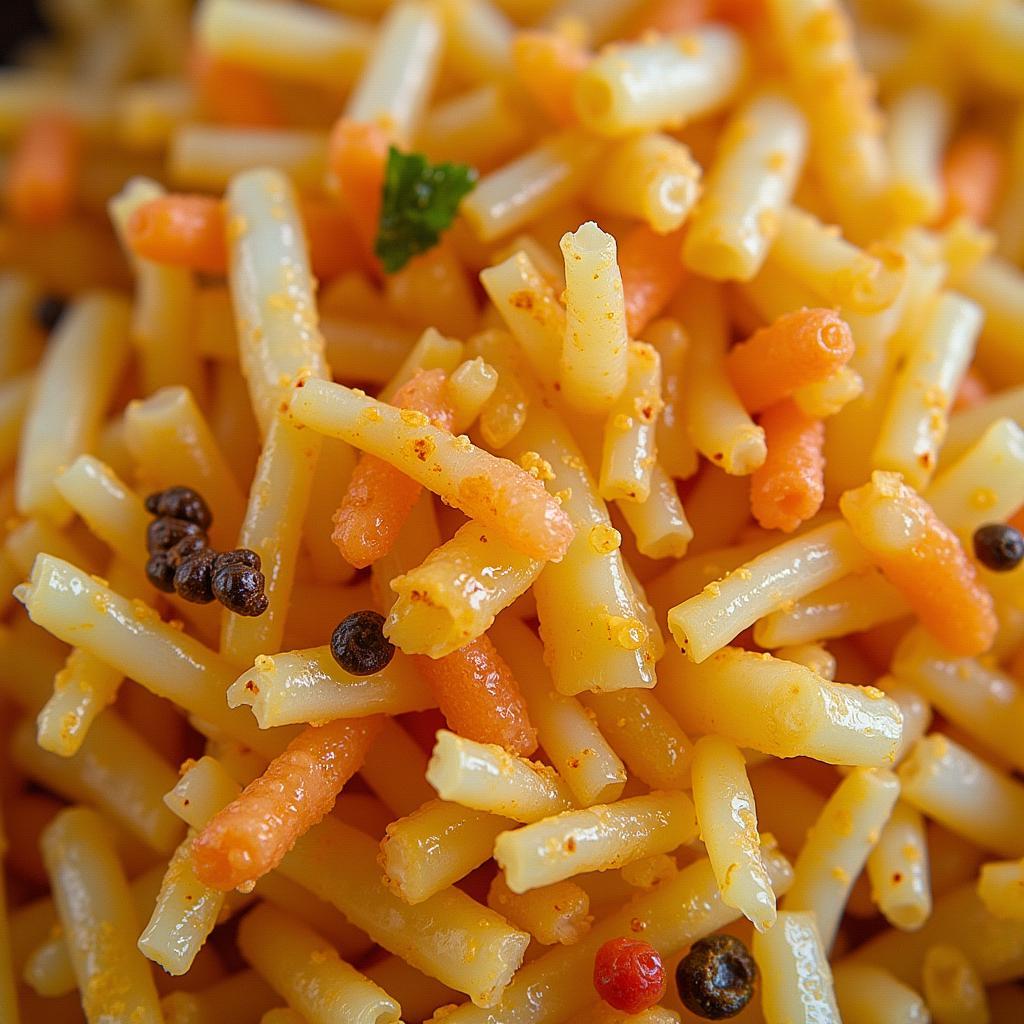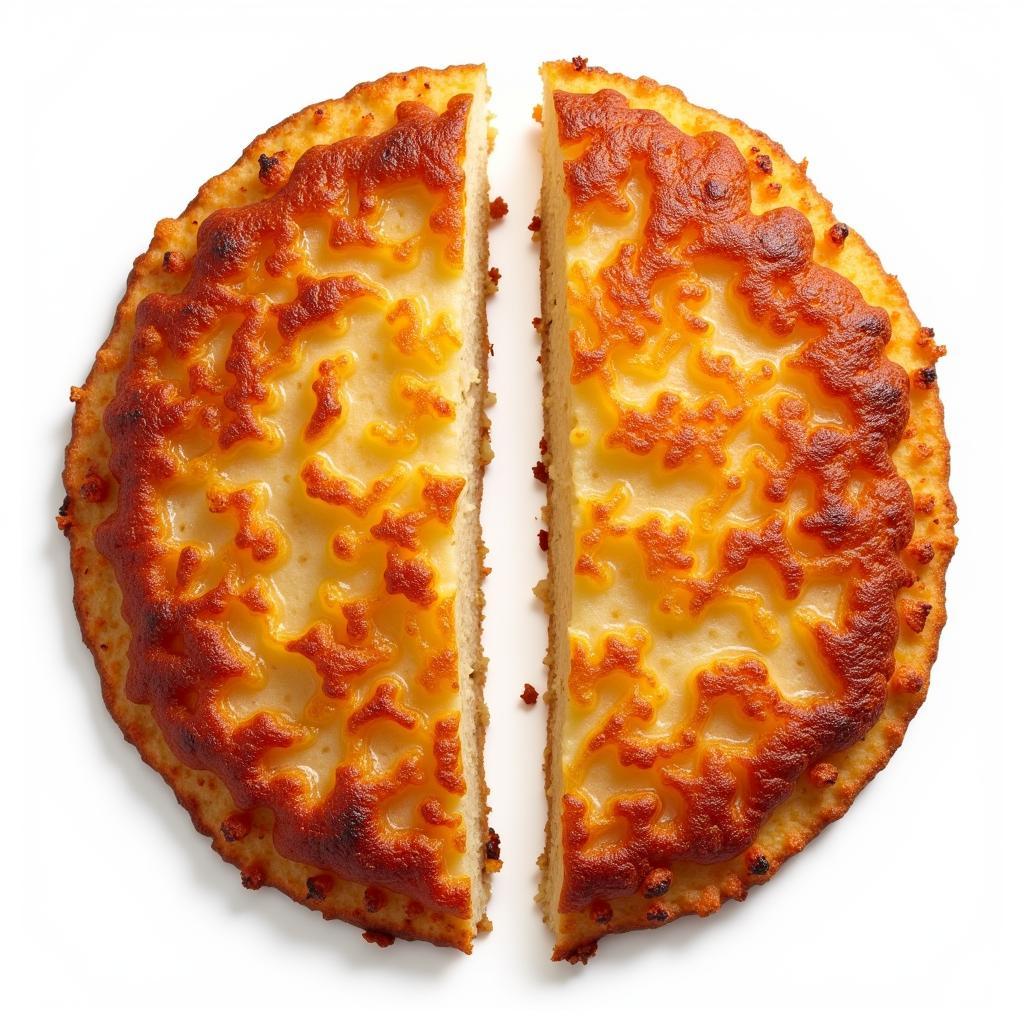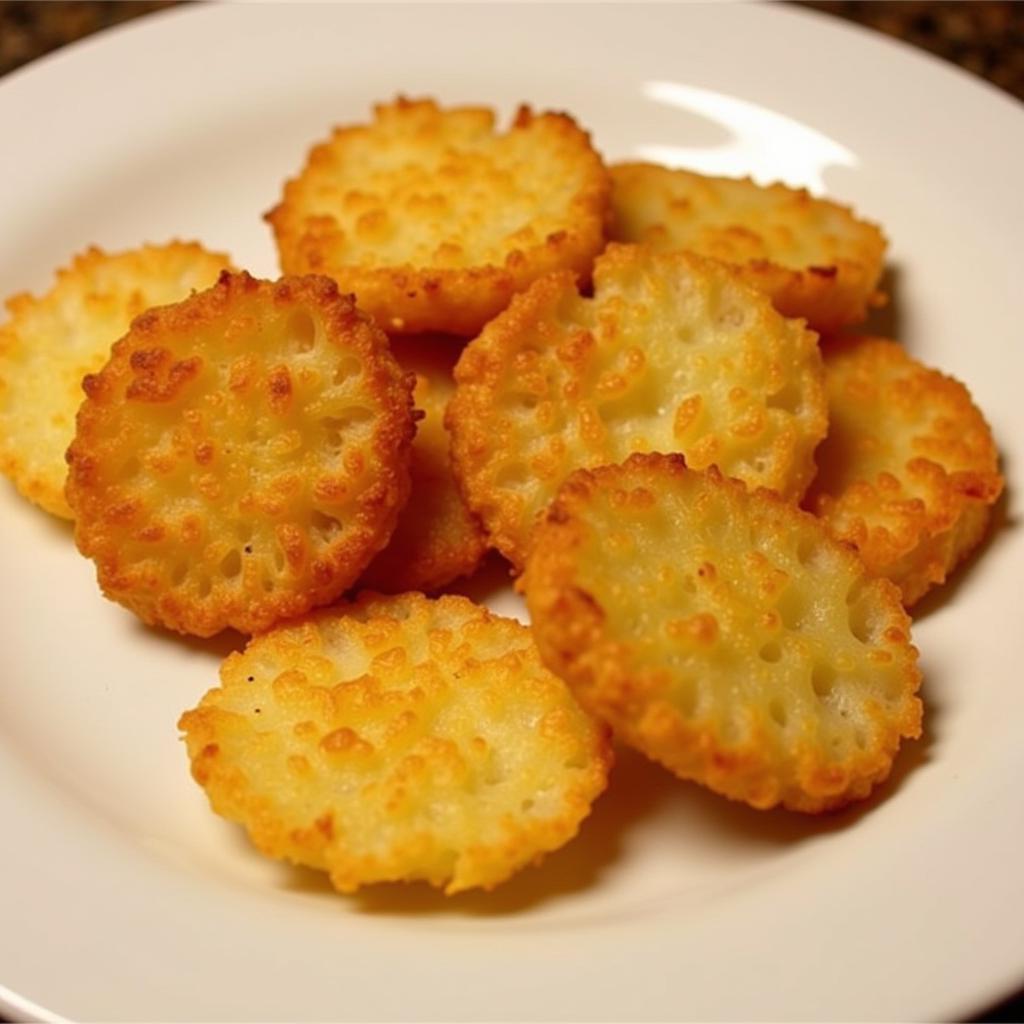Can You Get Food Poisoning From Hash Browns? Absolutely. While these golden-brown, crispy potatoes are a breakfast staple, they can become a vehicle for foodborne illness if not handled or cooked properly. Let’s delve into the reasons why and how to prevent a hash brown mishap.
The Perils of Potato Perfection: Understanding Hash Brown Food Poisoning
Hash browns, whether homemade or store-bought, are susceptible to bacterial contamination at various stages, from the farm to your fork. Improper storage, cross-contamination, and undercooking are the primary culprits. Understanding these risks is key to enjoying your hash browns safely.
Bacteria’s Favorite Brunch: Common Culprits in Hash Brown Food Poisoning
Several bacteria can find a home in your hash browns, causing unpleasant and potentially dangerous symptoms. Salmonella and E. coli are common offenders, often originating from contaminated potatoes or improper handling during processing. Bacillus cereus and Clostridium perfringens can also thrive in cooked potatoes if left at room temperature for extended periods.
 Bacteria on Hash Browns
Bacteria on Hash Browns
From Farm to Fork: Tracing the Sources of Contamination
The journey of a potato from the field to your plate involves multiple steps, each presenting an opportunity for contamination. Soil, water, and even handling during harvesting and processing can introduce bacteria. If potatoes are stored at improper temperatures, bacteria can multiply rapidly. Cross-contamination in the kitchen, such as using the same cutting board for raw meat and potatoes, can also lead to food poisoning.
Temperature Trouble: The Dangers of Undercooked Hash Browns
Undercooking hash browns is a major risk factor for food poisoning. Harmful bacteria may survive if the internal temperature doesn’t reach a safe level. This is particularly concerning with thicker hash browns or those made from frozen, where the center might not cook thoroughly.
 Undercooked Hash Browns
Undercooked Hash Browns
Safe Hash Brown Practices: Preventing Food Poisoning
Fortunately, preventing hash brown-related food poisoning is straightforward with a few key precautions. By following these guidelines, you can enjoy your crispy potatoes without worry.
Storage Smarts: Keeping Your Potatoes Pristine
Proper storage is crucial. Store raw potatoes in a cool, dry, and dark place. Avoid storing them in the refrigerator, as this can alter their starch content and affect their flavor. Cooked hash browns should be refrigerated promptly and consumed within a few days.
Handling with Care: Avoiding Cross-Contamination
Thoroughly wash your hands and all surfaces that come into contact with raw potatoes. Use separate cutting boards and utensils for raw meat and produce. Avoid touching cooked hash browns with utensils that have touched raw ingredients.
Cooking to Perfection: Ensuring Safe Internal Temperatures
Ensure your hash browns reach an internal temperature of 165°F (74°C). Use a food thermometer to check the temperature, especially for thicker hash browns. Reheat leftovers thoroughly to the same temperature.
“Proper handwashing and thorough cooking are essential for preventing food poisoning from any potato dish, especially hash browns,” advises Dr. Emily Carter, a food safety expert at the National Food Safety Institute. “Always use a food thermometer to ensure your hash browns reach a safe internal temperature.”
Conclusion: Enjoying Hash Browns Safely
Can you get food poisoning from hash browns? Yes, but with proper precautions, you can significantly reduce the risk. By following safe handling, storage, and cooking practices, you can confidently enjoy this breakfast favorite. So, go ahead and indulge in those crispy, golden-brown delights, knowing you’ve taken the necessary steps to ensure a safe and delicious meal.
 Perfectly Cooked Hash Browns
Perfectly Cooked Hash Browns
FAQ
- How long can I store cooked hash browns in the refrigerator? Cooked hash browns should be refrigerated promptly and consumed within 3-4 days.
- What are the symptoms of food poisoning from hash browns? Symptoms can include nausea, vomiting, diarrhea, abdominal cramps, and fever.
- Can I freeze hash browns? Yes, you can freeze both raw and cooked hash browns.
- What’s the best way to reheat hash browns? Reheat hash browns in a skillet, oven, or microwave until they reach an internal temperature of 165°F (74°C).
- Can I eat hash browns that have been left out at room temperature for more than two hours? No, it’s not recommended to eat hash browns left at room temperature for more than two hours, as this increases the risk of bacterial growth.
- What should I do if I suspect I have food poisoning from hash browns? Consult a doctor immediately if you experience severe symptoms.
- Are there any alternatives to traditional hash browns that might be safer? Consider baked or roasted potato dishes as alternatives, as they may pose a lower risk of food poisoning if cooked properly.
For further information, explore our other articles on food safety and potato recipes on Mina Cones Food.
When you need support, please contact us at Phone Number: 02437655121, Email: minacones@gmail.com or visit us at 3PGH+8R9, ĐT70A, thôn Trung, Bắc Từ Liêm, Hà Nội, Việt Nam. We have a 24/7 customer service team.